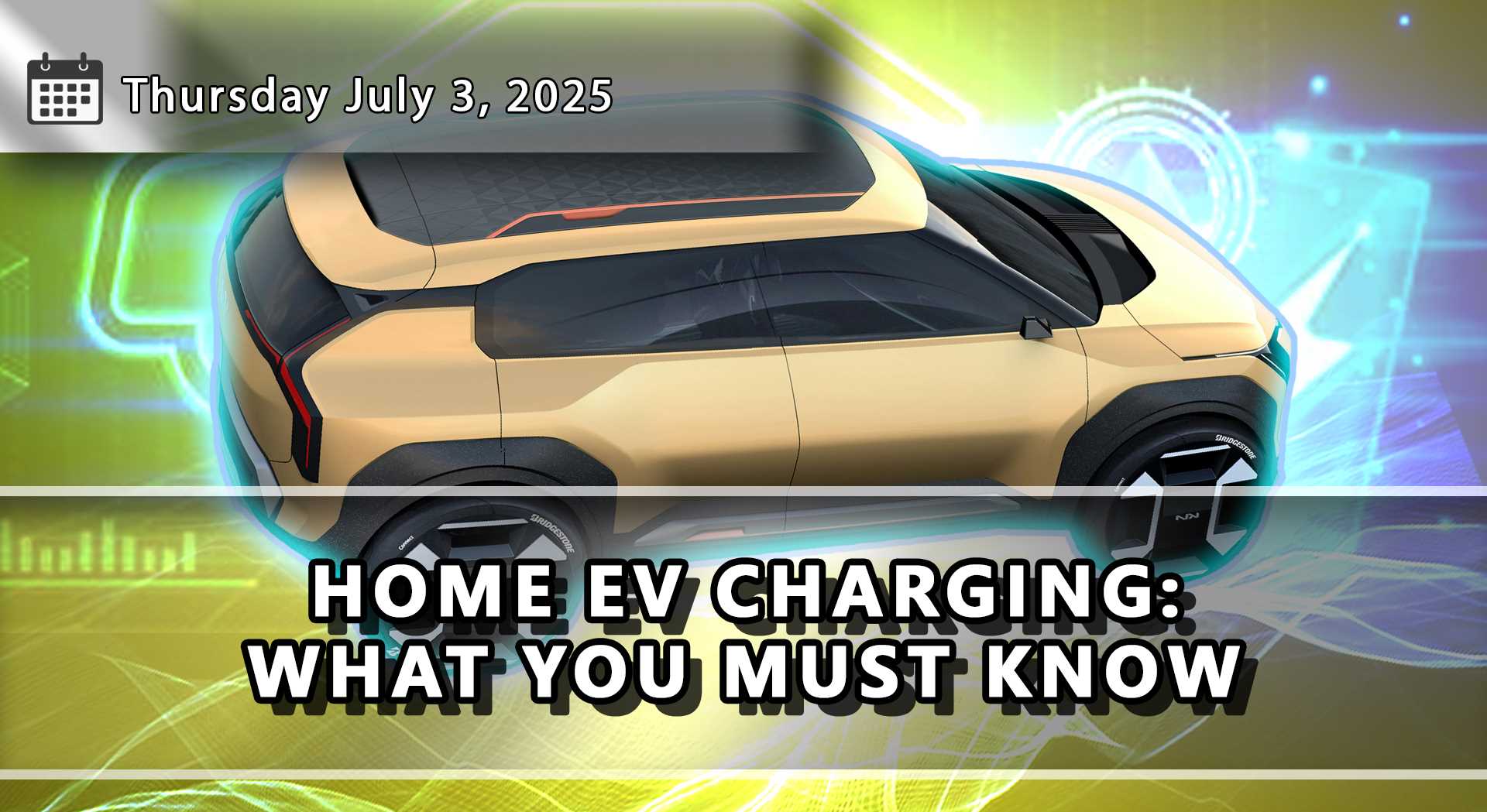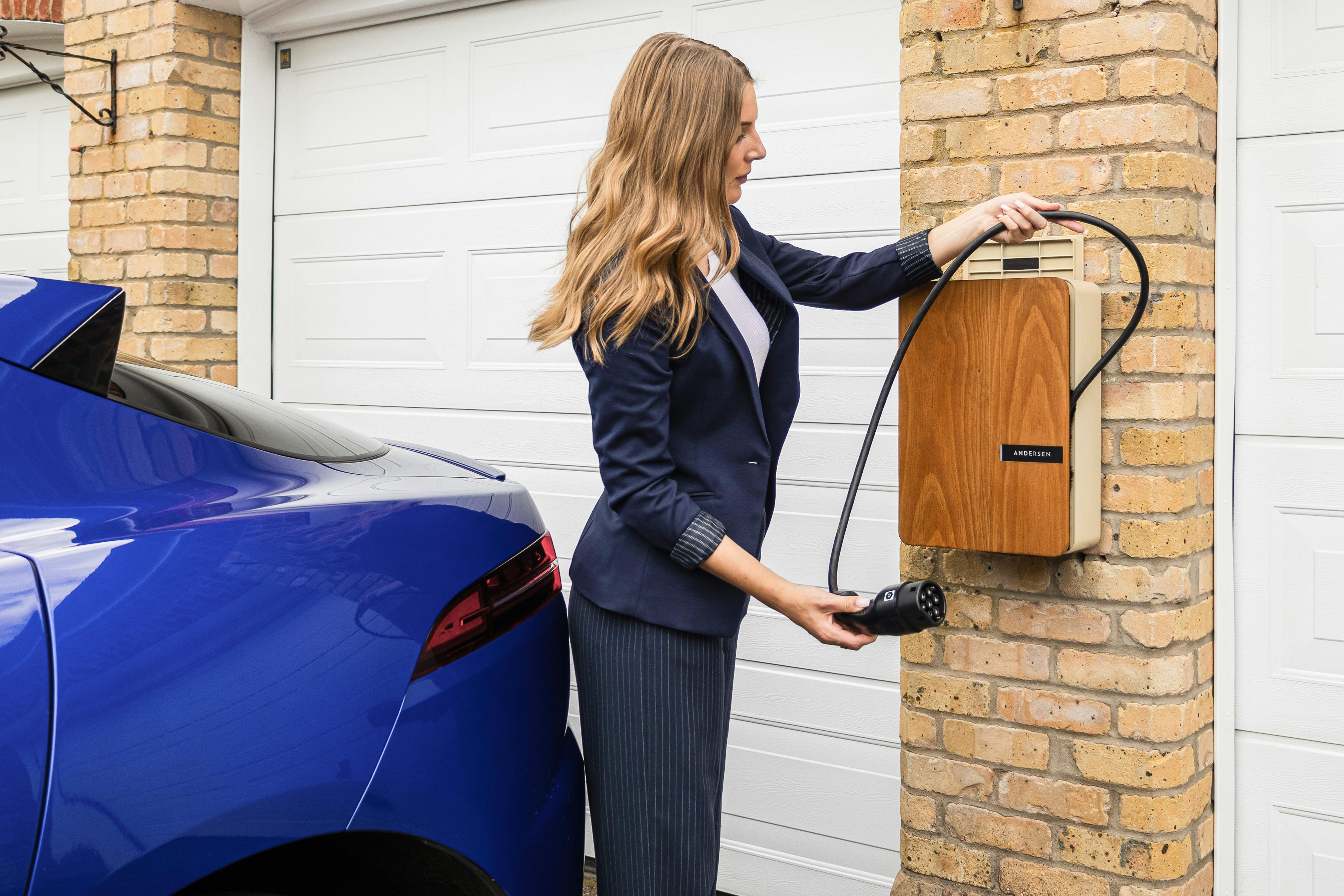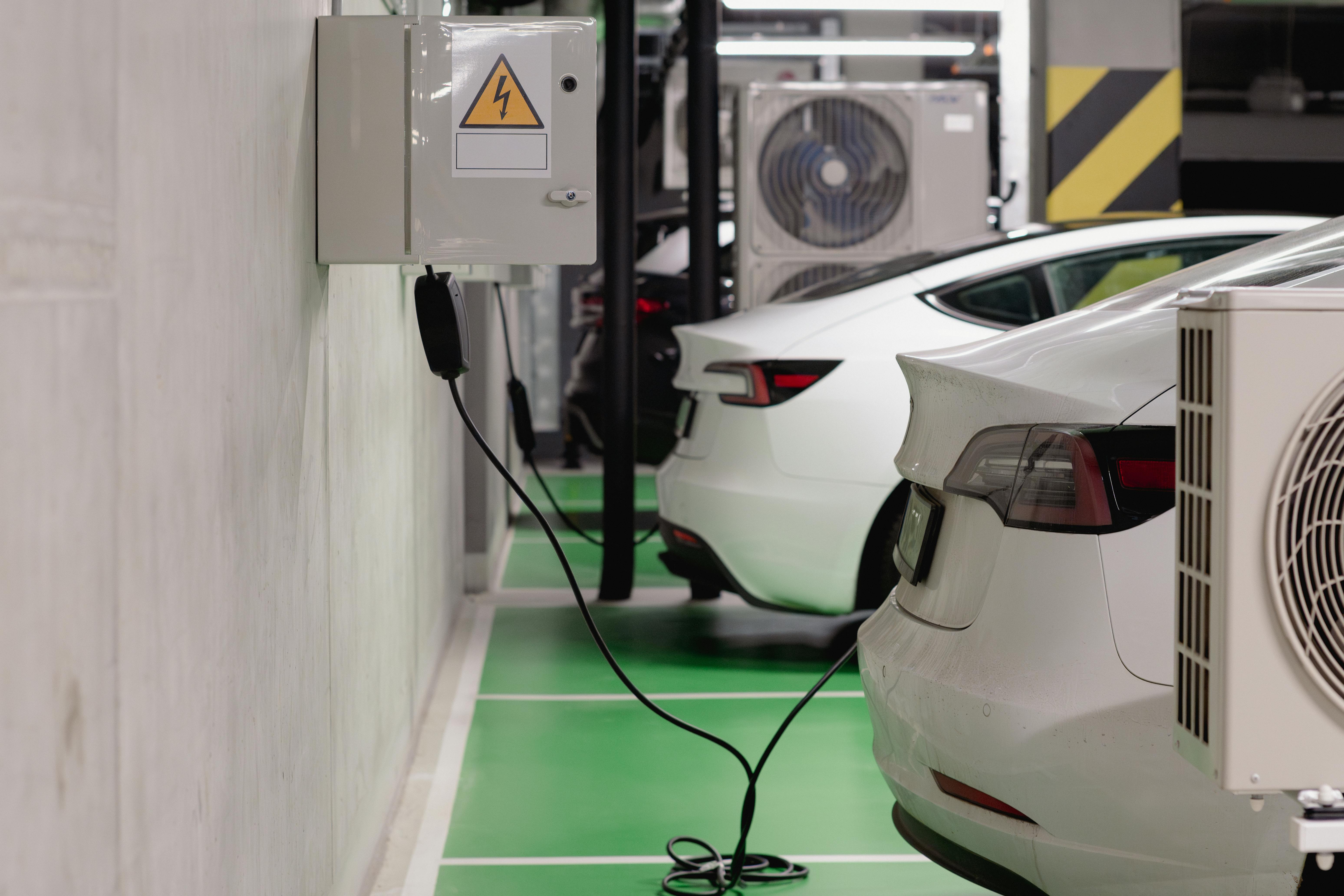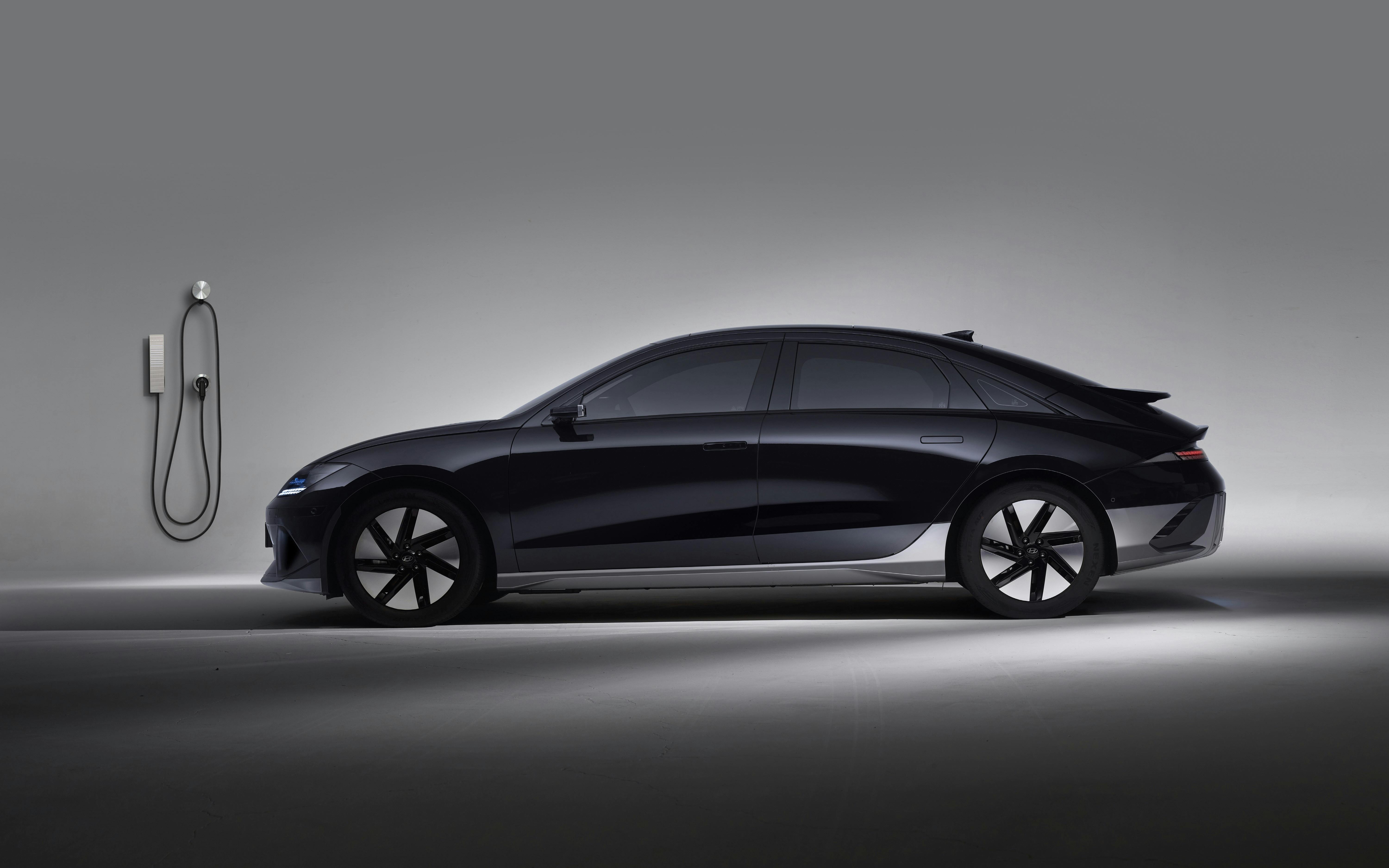Installing an Electric Vehicle (EV) Charger at Home: What to Keep in Mind
Thursday, July 3, 2025

By Scott Shpak for REALTOR.ca
Since 2020, sales of zero-emission vehicles (ZEV) have grown substantially in Canada, building from 3.8% of light duty vehicle sales at the start of the decade to 13.7% in July 2024, according to figures released by Transport Canada. In fact, in 2024, one in seven new vehicles sold in Canada were zero-emmission.
Electric vehicles (EV) continue to dominate the ZEV field, so that means EV charging capability faces increased demand, too. Installing an EV charging station at home could be a sensible alternative as there are concerns that public charging stations aren’t keeping up with demand. If you’re in the market for an EV, or you already have one and are looking to install a charging station at home, here’s what we’ll go over in this article.
What are the different types of EV charging stations?
How much does it cost to install an EV charger at home?
Can I install an EV charger if I live in a condo building or apartment?
Safety considerations for installing an EV charger at home.
Cost benefits of owning an electric vehicle.
What are the different types of EV charging stations?

Perhaps your first consideration for a home charging station is your desired charging level, of which you have a choice of two. All electric cars and charging stations sold in North America use the same plug, so the option to go with at home comes down to technical aspects.
Level 1: uses a standard 120 volt adapter, usually supplied with your vehicle, requiring a minimum of eight hours to charge a battery from empty to 80%, and potentially much longer.
Level 2: uses a 240 volt outlet, like an electric dryer or range, taking between four to 10 hours to reach an 80% charge from empty. For this charger, you’ll likely need to contact a licensed electrician for installation. Check with your local jurisdiction on their regulations.
Most committed EV owners choose level 2. Level 3 chargers represent those at gas stations and public charging locations. A full charge takes less than an hour, but these are prohibitively expensive and not yet available for home use. There are also “smart chargers” which come with Wi-Fi capabilities, allowing you to monitor your power usage remotely. This can help you take advantage of off-peak energy costs.
Another thing to consider is whether your charger will be indoors or outdoors—there are benefits to both. Indoor chargers offer protection from the elements, convenience, and potentially lower installation costs if you can leverage your existing garage electrical wiring. Outdoor chargers can be more work to install due to any trenching or weatherproofing required, but they don’t take up space in your garage, offer increased accessibility, and give you additional flexibility for placement. Cold temperatures can affect battery life, so if you live somewhere with long, frigid winters, indoors might be a better option for you.
Natural Resources Canada has a list of considerations to review when selecting the type of charger that works best for your situation at home. These include:
Is my parking space in a garage or is it outdoors?
How much do I drive?
Is the charger safety certified?
Do I want a portable or wall-mounted charger?
How can a “smart charger” benefit me?
How much does it cost to install an EV charger at home?

The cost of installation depends on a wide range of factors. Homes with electrical service to the garage or a driveway with a nearby electrical outlet can handle level 1 charging without modifications or upgrades in most cases.
Boosting service to level 2 could be limited by electrical service to your home as well as the capacity of current breaker panels. Proper installation requires a licensed professional and costs vary by the distances between panels and outlets, as well as any additional equipment upgrades necessary to meet local codes.
As an incentive for installing EV chargers in single family homes, some provincial governments offer a rebate of up to 50% of the installation cost per home. There are also some incentives and rebates provided by select energy providers, so it’s important to look into your local and provincial opportunities as some rebates require pre-approval before the work begins.
Can I install an EV charger if I live in a condo building or apartment?

If you live in an urban area that relies on street parking, you have no real options at this point for home-based charging. Similarly, apartment and condo dwellers may not be able to install service unless your building offers these as an amenity.
Unless the building already has EV chargers available, the installation cost likely falls on the car owner and your charger setup can cost thousands of dollars. If installing the charger is a make-or-break scenario for you, have your REALTOR® speak to the condo board or corporation before you consider making an offer. Typically, you’ll need a lawyer to navigate a special amendment for packaging with your condo agreement, including provisions for paying an additional hydro bill each month associated with your EV charger.
Depending on the scale of the project and the condo board’s policies, changes to common elements often require meetings and a vote from other owners to approve. A condo owner or potential buyer may need to write up a proposal applying to the corporation requesting the installation, which can include specifications, costs, required drawings, permits, and more.
The Guide to Electric Vehicle Charging in Multi-Unit Residential Buildings provided by Natural Resources Canada can be a good starting point for buildings that want to install EV charging infrastructure in both new and existing multi-residential properties. There are federal and provincial incentives available for the installation of EV charging stations in multi-unit residential buildings.
Safety considerations for installing an EV charger at home
EV chargers are major electrical appliances, which means there are safety considerations to take into account before installing one at home. This ensures that your car is protected against damage caused by faulty charging systems, and more importantly, that your home is protected against any major risks as well.
For instance, Ontario’s Electrical Safety Authority (ESA) has a lot of helpful resources to aid you on your EV journey, though it’s always important to check with your provincial and municipal regulations. However, a lot of these tips and considerations are applicable no matter where you live.
File all required paperwork before beginning installation
Ensure installation is completed by a professional. In some provinces you’ll require a licensed electrical contractor, not an electrician
Ensure your electrical panel can handle the extra load. If you’re unsure or require an upgrade, contact your local utility.
Look for a Canadian certification mark that indicates it has been assessed for safety. According to the ESA, “an electrical product or piece of electrical equipment is used, sold, displayed, or advertised for sale in Ontario, it needs to be approved by an accredited certification or evaluation agency. This [certification mark] indicates that the product has been independently assessed for safety.”
Cost benefits of owning an electric vehicle

At first glance, it may seem as though the hurdles facing the EV owner are high if there’s a need to create your own home-based charging infrastructure. However, these upfront costs may be offset by the advantages offered by your EV. Let’s look at where you can expect to save money.
Fuel costs
According to the Canadian Automobile Association (CAA), the average fuel cost of a gas powered vehicle is about $3,000 annually. EV owners can expect a boost in their hydro consumption of a few hundred dollars per year. Charging at home is typically cheaper than charging at a public station.
Maintenance
You’ll also benefit from reduced maintenance costs with your EV. The rule of thumb suggested by CAA is you’ll pay about half as much in maintenance compared with a gas vehicle owner.
Insurance

You may pay less for automobile insurance too. Some insurers offer discounts and incentives for EV and hybrid vehicles.
These can add up to thousands saved in vehicle costs annually, paying back any initial investment in your home charging station.
Keep your EV vehicle in mind if you’re shopping for a home, whether you’re a current owner or if you have plans for the future. Let your REALTOR® know EV charging is important to you so they can keep your home search on target. If you’re not yet working with a REALTOR® and are curious about homes with EV chargers, you can filter properties on REALTOR.ca by searching for listings that include “EV charger” in the description.
The EV evolution is still in progress, and conditions are improving in terms of support. However, when your home-based charging station installation makes economic sense, the long-term benefits make it a near no-brainer. Review these points and see how your situation stacks up. Happy Driving!
If you are thinking about buying, selling or both this year, please reach out. There is over 100 years of experience on the Brian Kondo Real Estate Team.
Using our proven Home Selling system, we help our clients sell their homes fast, for top dollar, in the least amount of time, using our expertise to make it a smooth and pleasant experience.
Using our exclusive Home Buying System, we help our clients find the home of their dreams!
To find out more, please call me at 905-683-7800. You can also email at brian@briankondo.com.
Thanks for reading today’s BLOG!!!

Brian Kondo
Sales Representative / Team Leader
The Brian Kondo Real Estate Team
Re/Max Hallmark First Group Realty Ltd.
905-683-7800 office
905-426-7484 direct
brian@briankondo.com
www.BrianKondo.com
www.BrianKondoTeam.com
Scott Shpak's article was initially published on Realtor.ca. You can find it by clicking here.
| REALTOR.ca is the most popular and most trusted real estate website in Canada. Owned and operated by the Canadian Real Estate Association (CREA), REALTOR.ca provides up-to-date and reliable information that makes finding your dream property easy and enjoyable. REALTOR.ca is popular with sellers, buyers, and renters and is accessible online and on mobile devices. |
|
Scott Shpak |
About the Author Formerly an operations manager with Kodak, Scott is 15 years into a second career as a freelance content creator – writing, photographing, and recording music for television. Stuck somewhere between minimalist and maximalist tastes, he loves the history of design, even if he can’t quite establish his own. |
Homesellers - Find Out What Homes in Your Neighbourhood are Selling For! You can receive a FREE computerized printout of ALL recent Home Sales and Current Listings in your neighbourhood. Click here!
Best Buy Hotlist - You can receive a FREE list of the 10 Best Buys in your
specific price range sent to you at No COST or OBLIGATION.
Click here!
Your Home Sold Guaranteed or I'll Buy It!* No Gimmicks! For a Free Special Report that Details my Guaranteed Sale Program, visit: www.BriansGuaranteedSaleProgram.com.
Remember, your referrals change lives! We donate a portion of our income on every home sale to a great worthy cause like SickKids Hospital. To find out more visit: www.ReferForSickKids.com.
If you or anyone you know is considering making a move in the next little while, give me a call or pass on my number ... 905-683-7800 (Office) or 905-426-7484 (Direct).
#HousingMarket #HomeEVChargerInstall #DIYLevel2Charger #EVChargePointSetup #GarageEVCharger #ResidentialEVSE #HomeChargeStation #EVSEInstallation #EVChargerDIY #Level2EVChargerHome #EVChargerAtHome




